
Versatile beef brisket is used in a variety of dishes, from corned beef at Passover to a traditional pot roast. It's also the meat of choice for many barbecue connoisseurs. Brisket is a lean cut that tends to dry out when cooked, which makes it a good candidate for brine. Brining keeps in moisture and adds flavor for the "low and slow cooking" method that's best for brisket.
Salt and Water
Brine is basically salt dissolved in water, often with sugar, spices and herbs added at the cook's discretion. Added flavorings can enhance the brisket's taste, but they play no role in getting the meat to absorb water, which is the primary purpose. A brisket can soak in brine from 30 minutes to several hours or overnight, depending on the size and weight of the beef and how intense you want the flavor to be. Unfortunately, there's no hard-and-fast rule about brine timing, except that it's usually better to under-brine than to over-brine. That's because meat that sits in brine too long can turn gray and mushy.
Cover Meat with Salted Water
To make a brine solution for brisket, start by adding 1 cup of non-iodized kosher salt to 1 gallon of water. This amount should be enough to completely cover a 2- to 3-pound brisket. Add more water if needed to completely cover the meat, but be sure to measure it and add a proportionate amount of salt. If the brisket is large enough that you want it to brine for several hours, increase the concentration to 9.6 ounces of salt for every gallon of water.
Salt Encourages Moisture
Salt is the key ingredient when it comes to brining a brisket, because it's the salt that encourages the meat to soak up more water. Kosher salt is preferred for brine rather than table salt because its bigger flakes dissolve more easily. Some cooks also think that kosher salt has a more mellow taste than table salt, which is ground into sharp crystals that are meant to pack an instant flavor punch. However, because kosher salt is bulkier than table salt, you may need to use more by volume. Different brands of kosher salt have different densities, too, so it's a good idea to experiment with a smaller cut of beef to get the recipe right.
Refrigerate and Rinse
Refrigerate the brisket in a covered container for the desired time. Any container that's food safe and non-corrosive will work; just be sure that the brine, which is concentrated salt water, won't eat away at the container. In particular don't use an aluminum pot, because it makes the meat taste bad. If your brisket is large, it may not fit in a refrigerator. A clean cooler can serve the same purpose; simply swap out ice for an equal amount of water in the brine recipe. Rinse the brisket well after brining to remove all visible salt, and then cook without adding more salt to the meat.
Related Articles
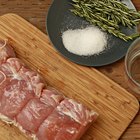
How to Brine Pork Roast
How to Brine Pork Ribs for a BBQ
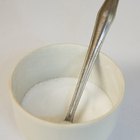
How to Brine a Smoked Beef Brisket
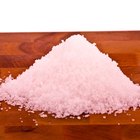
How to Use Sea Salt for Canning
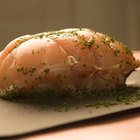
How to Brine Pork Loins

Brine for a Deer Ham
How to Brine a Goose

How to Make Salt Brine

How to Bake a Dry Rubbed Corned Beef ...

How to Brine a Turkey Using Orange Juice

How Long Can Beef Brisket Be ...
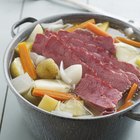
How to Cook a Large Amount of Corned ...
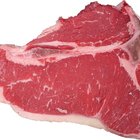
The Effect of Salt on the Tenderness of ...

How to Convection Roast a Brisket
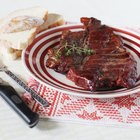
How to Smoke Elk Meat

How to Brine a Whole Pig

How to Soak Deer Meat in Baking Soda
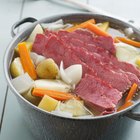
How to Pickle Beef Brisket
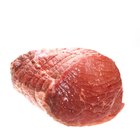
How to Boil Beef

How to Cook a Beef Spleen
References
Resources
- The Brisket Book: A Love Story with Recipes; Stephanie Pierson
Writer Bio
Cynthia B. Astle is a longtime journalist who has written on practically every topic of human interest for newspapers such as the "United Methodist Reporter," magazines including "Response," "Arts Ministry" and the "Progressive Christian" and websites such as Darkwood Brew and United Methodist Insight. She was also a food editor and restaurant reviewer for the "Clearwater Sun."
Photo Credits
Zedcor Wholly Owned/PhotoObjects.net/Getty Images